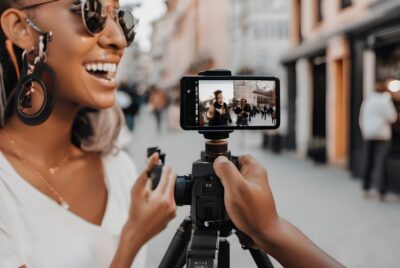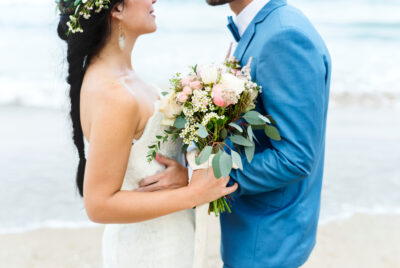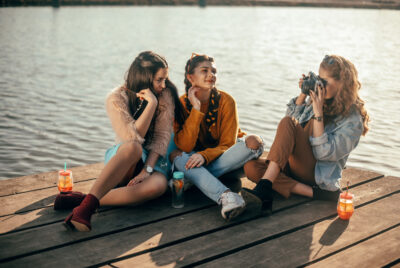Beginner Photography Camera
Starting your photography journey is exciting—but choosing your first camera? That can feel like a maze. I’ve been there, staring at endless specs and price tags, wondering, “Which one will actually help me learn?” In this guide, I’ll walk you through what matters (and what doesn’t) when picking a beginner photography camera.
Why Your First Camera Matters
Avoiding Overwhelm as a Beginner
When I started, I made the mistake of buying a camera that was too advanced. I spent more time reading the manual than taking photos. Trust me—starting simple is the smart move.
Learning the Basics with the Right Tool
A good beginner camera lets you grow into manual controls while still offering auto modes when you need backup. It’s your training wheels and your first race car—just not all at once.
>> Full range & prices of camera kits HERE <<
What Makes a Good Beginner Camera?
Easy-to-Use Controls
You don’t want to dive into a 300-button spaceship. Look for intuitive layouts, guided modes, and helpful onscreen prompts.
Lightweight and Portable
Big, heavy gear can be a buzzkill, especially when you’re just getting the hang of shooting. Lightweight cameras make practice less of a chore and more of a habit.
Interchangeable Lenses
Even if you don’t plan to buy lenses right away, having the option means you can explore different styles (like portraits or landscapes) later without replacing your whole camera.
DSLR vs Mirrorless for Beginners
Pros and Cons of DSLRs
DSLRs like the Canon Rebel T8i offer great image quality, long battery life, and an optical viewfinder (what you see is what you get). Downsides? They’re bulkier and slower with autofocus compared to modern mirrorless systems.
Pros and Cons of Mirrorless Cameras
Mirrorless options like the Sony ZV-E10 are compact, fast, and perfect for beginners. They show you real-time exposure previews, which helps a lot when learning. The only real downside is slightly shorter battery life.
Top Beginner Photography Cameras in 2025
Canon EOS R50
Canon nailed it with the R50. It’s user-friendly, compact, and comes with guided menus to walk you through settings. Great for portraits, travel, and everyday photography.
Nikon Z30
The Z30 is ideal for content creators who also want to dive into photography. It’s affordable, has excellent autofocus, and includes a flip screen for selfies or vlogging.
Sony ZV-E10
Sony’s ZV-E10 packs a punch with a large sensor, real-time eye autofocus, and awesome video features. It’s basically a tiny beast built for beginners who want to grow fast.
Key Features to Look For
Sensor Size and Image Quality
Bigger sensors (like APS-C) capture more detail and work better in low light. They’re a sweet spot between quality and price for beginners.
Autofocus and Burst Mode
You want a camera that locks focus fast and can shoot multiple images per second. This helps with moving subjects—like kids, pets, or just life in motion.
Flip Screen and Touch Controls
A screen that flips out helps with selfies and awkward angles. Touchscreens make navigating menus and focusing feel natural, like using a phone.
Budget Considerations
New vs Used Gear
Buying used can save hundreds. Sites like KEH, B&H Used, and MPB offer inspected gear with warranties. Just avoid sketchy deals on marketplaces unless you know what to check for.
When to Upgrade (and When Not To)
Don’t worry about upgrading until your skills outgrow your gear. I used my first camera for four years—and I only upgraded when I knew exactly what I needed next.
Accessories That Make a Difference
A Versatile Kit Lens
Most beginner cameras come with an 18–55mm kit lens. It’s actually quite good! Learn to master it before buying specialty lenses.
Tripod and SD Card Must-Haves
Even a cheap tripod helps with low-light or long exposure shots. Also, get a fast SD card (Class 10 or UHS-I)—slow cards can cause delays or missed shots.
Camera Bag and Cleaning Tools
Protect your gear and keep your lenses dust-free. A simple camera bag and a blower brush can go a long way in extending your camera’s life.
Getting Comfortable with Manual Settings
Start with Aperture Priority Mode
This semi-auto mode lets you control depth of field (how blurry the background is) while the camera adjusts the rest. It’s the perfect training ground for manual shooting.
Practice with ISO and Shutter Speed
ISO affects light sensitivity; shutter speed affects motion blur. Try different combinations in different lighting—sunsets, indoors, cloudy days—to learn fast.
Building Confidence Behind the Lens
Shoot Every Day (Even in Boring Light)
The best way to get better? Just shoot. Even if it’s your desk or your dinner. You’ll learn to see beauty in the everyday—and how your camera sees light.
Join a Community or Online Group
Facebook groups, Reddit threads, and local meetups are gold mines. Post your work, ask for feedback, and learn from others who are just a few steps ahead of you.
Editing Tools for Beginners
Free vs Paid Software Options
Apps like Snapseed (free) or Lightroom (paid) help polish your photos. Start free—once editing becomes part of your process, then consider subscriptions.
Learning Basic Color and Exposure Corrections
No need for complex edits. Fix exposure, tweak contrast, and boost vibrancy. Editing is where your vision really comes to life.
Common Mistakes to Avoid Early On
Gear Obsession Over Skill Building
Don’t fall into the trap of thinking better gear = better photos. Your creativity, timing, and eye matter way more than specs.
Relying Too Much on Auto Mode
Auto is helpful, but you won’t learn as fast. Try switching to semi-manual modes and take note of how each setting affects your photo.
Conclusion
Choosing your first beginner photography camera doesn’t have to be complicated. Stick with something simple, lightweight, and flexible. Focus on shooting, learning, and having fun—not obsessing over features you’ll never use (yet). The right camera is the one that helps you fall in love with photography—and keeps you inspired every time you pick it up.
>> Full range & prices of camera kits HERE <<
FAQs
1. What’s the best camera for a photography beginner?
The Canon EOS R50, Sony ZV-E10, and Nikon Z30 are top choices in 2025—affordable, easy to use, and great image quality.
2. Should I start with a DSLR or mirrorless camera?
Mirrorless is lighter and more beginner-friendly with real-time previews, but DSLRs are great if you want longer battery life and optical viewfinders.
3. Is it worth buying a used beginner camera?
Yes! Used gear is budget-friendly and often just as good. Stick to reputable retailers that offer warranties.
4. Can I take good photos with just the kit lens?
Absolutely. The kit lens is more powerful than you think—mastering it teaches you composition and camera settings without the distraction of extra gear.
5. How long before I should upgrade my camera?
When your current gear limits your creative vision. Until then, focus on building skills and practicing different styles.
Further reading
Check out our other relevant articles:
Mirrorless vs DSLR: Right Choice for Your Photography Needs?
To complement the article on “Beginner Photography Camera,” here are two reputable resources offering educational guidance and insights for novice photographers:
1. The Best Camera for Beginners 2025 – TechRadar
This comprehensive guide evaluates top entry-level cameras suitable for beginners in 2025. It highlights models like the Canon EOS R10, Olympus OM-D E-M10 Mark IV, and Nikon Z50 II, detailing their features, usability, and performance. The article provides in-depth reviews, helping newcomers choose a camera that balances simplicity with advanced capabilities.
2. 25 Photography Tips for Beginners in 2025 – Photography Life
This article offers 24 practical photography tips tailored for beginners. It covers fundamental techniques, creative composition, and essential camera settings. The bite-sized advice is easy to understand, making it an excellent resource for those starting their photography journey.
These resources provide valuable information to help you select the right beginner photography camera and develop your skills effectively.
.




